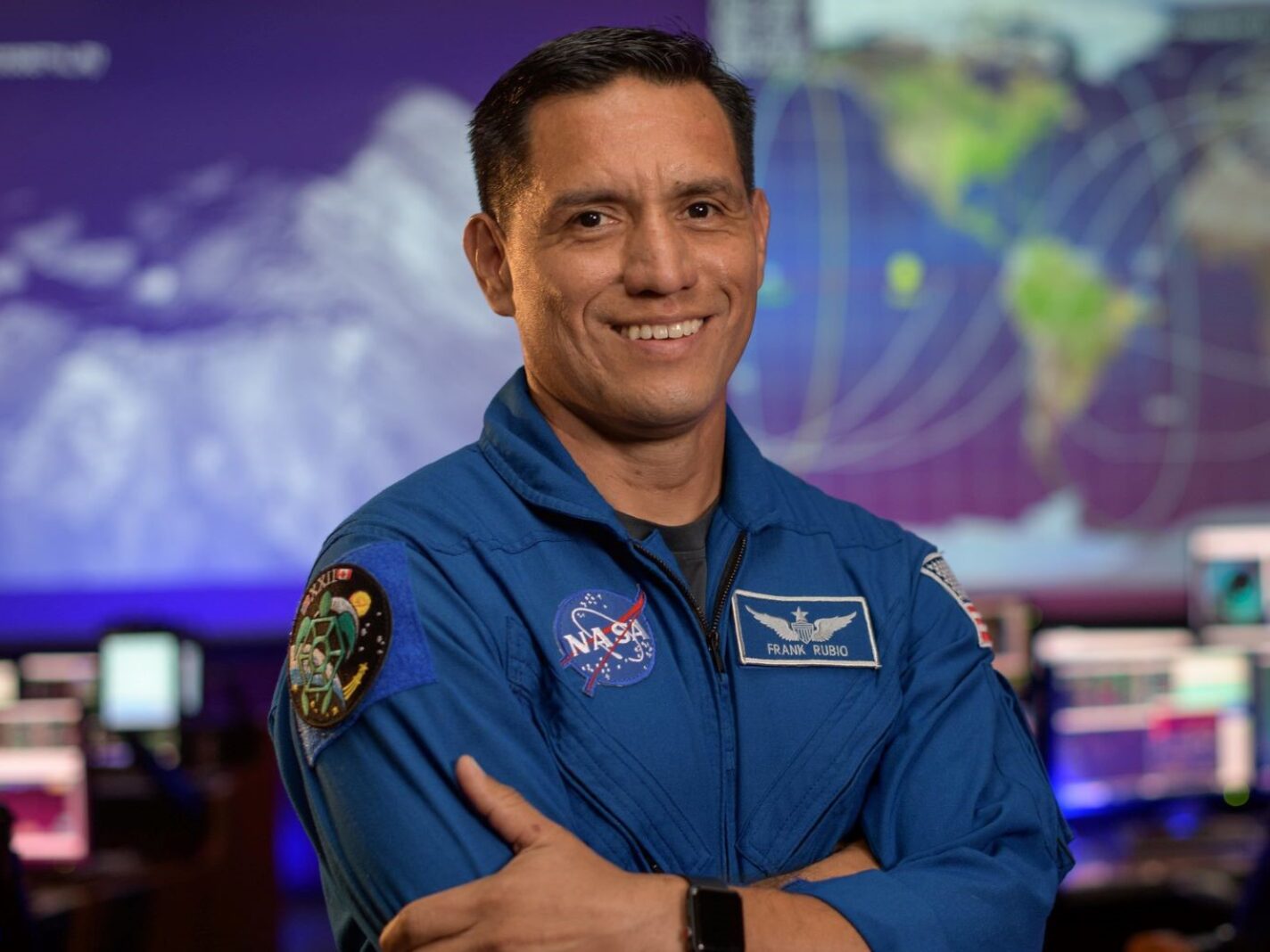Astronaut Frank Rubio Is Set To Break Record For Longest Mission By A US Astronaut
Astronaut Frank Rubio is set to break record for longest mission by a US astronaut, as he will stay in space for over a year. Rubio traveled to the International Space Station on September 21, 2022, for what he thought would be a six-month mission.
Author:Camilo WoodReviewer:Dexter CookeMar 31, 20233.8K Shares296.4K Views

Astronaut Frank Rubio is set to break record for longest mission by a US astronaut, as he will stay in space for over a year. Rubio traveled to the International Space Station on September 21, 2022, for what he thought would be a six-month mission. However, a coolant leak in the spacecraft he arrived in caused officials at Roscosmos, Russia’s space agency, to deem the spacecraft unsafe to carry the astronauts back home, delaying his return trip.
Rubio will return to Earth aboard a Russian Soyuz spacecraft no earlier than September 27, logging at least 371 days in orbit and beating the previous record of 355 days set by US astronaut Mark Vande Hei in 2022. The late Russian cosmonaut Valeri Polyakov still holds the world record for the longest continuous stay in orbit, logging 437 days in 1994-1995 aboard Russia’s Mir space station.
Rubio's extended stay was not previously anticipated before the Soyuz MS-22 capsule had a coolant leak last December. Rubio’s trip to the space station was part of a crew-swapping agreement between NASA and Roscosmos, which was crucial to ensuring “continued safe operations” of the space station, as NASA stated. Despite geopolitical tensions between the United States and Russia, NASA has repeatedly emphasized the importance of the partnership with Roscosmos in continuing the space station’s operations and valuable scientific research.
Before Vande Hei, US astronaut Scott Kelly held the title for the longest spaceflight by an American with his 340-day mission. Rubio's extended stay is a result of the spacecraft malfunction, while Vande Hei’s stay was extended due to Russia sending a film crew to the space station.
Rubio's return trip had been slated for the spring of 2023, but due to the Soyuz MS-22 capsule malfunction, it was delayed. The capsule returned to Earth without a crew on March 28, and a replacement spacecraft, MS-23, docked with the space station on February 23.
Rubio's mission will not only break the US record for the longest mission by an astronaut but also contribute to important research on the long-term effects of spaceflight on the human body.
Rubio's historic stay in space is also a testament to the resilience and adaptability of astronauts. Living and working in space for over a year and a half requires immense physical and mental strength, as well as the ability to work effectively in a challenging environment.
Conclusion
As the world looks towards the future of space exploration, Rubio's mission serves as a reminder of the incredible feats that humans can achieve through innovation, dedication, and perseverance. The lessons learned from his record-setting stay in space will help pave the way for future astronauts and further our understanding of the universe beyond our planet.
Jump to

Camilo Wood
Author
Camilo Wood has over two decades of experience as a writer and journalist, specializing in finance and economics. With a degree in Economics and a background in financial research and analysis, Camilo brings a wealth of knowledge and expertise to his writing.
Throughout his career, Camilo has contributed to numerous publications, covering a wide range of topics such as global economic trends, investment strategies, and market analysis. His articles are recognized for their insightful analysis and clear explanations, making complex financial concepts accessible to readers.
Camilo's experience includes working in roles related to financial reporting, analysis, and commentary, allowing him to provide readers with accurate and trustworthy information. His dedication to journalistic integrity and commitment to delivering high-quality content make him a trusted voice in the fields of finance and journalism.

Dexter Cooke
Reviewer
Dexter Cooke is an economist, marketing strategist, and orthopedic surgeon with over 20 years of experience crafting compelling narratives that resonate worldwide.
He holds a Journalism degree from Columbia University, an Economics background from Yale University, and a medical degree with a postdoctoral fellowship in orthopedic medicine from the Medical University of South Carolina.
Dexter’s insights into media, economics, and marketing shine through his prolific contributions to respected publications and advisory roles for influential organizations.
As an orthopedic surgeon specializing in minimally invasive knee replacement surgery and laparoscopic procedures, Dexter prioritizes patient care above all.
Outside his professional pursuits, Dexter enjoys collecting vintage watches, studying ancient civilizations, learning about astronomy, and participating in charity runs.
Latest Articles
Popular Articles